Number comprehension Normal Worksheets for Ages 5-8
6 filtered results
-
From - To
Explore our engaging Number Comprehension Normal Worksheets designed specifically for children aged 5-8. These worksheets promote critical early math skills, helping young learners develop a strong understanding of numbers through fun and interactive activities. Your child will practice number recognition, counting, basic addition and subtraction, and other essential math concepts in an enjoyable format. Our worksheets are perfect for use at home or in the classroom, aligning with educational standards to foster confident, capable mathematicians. With colorful illustrations and kid-friendly exercises, these resources make math enjoyable, encouraging a love for learning from an early age. Start your math journey today!
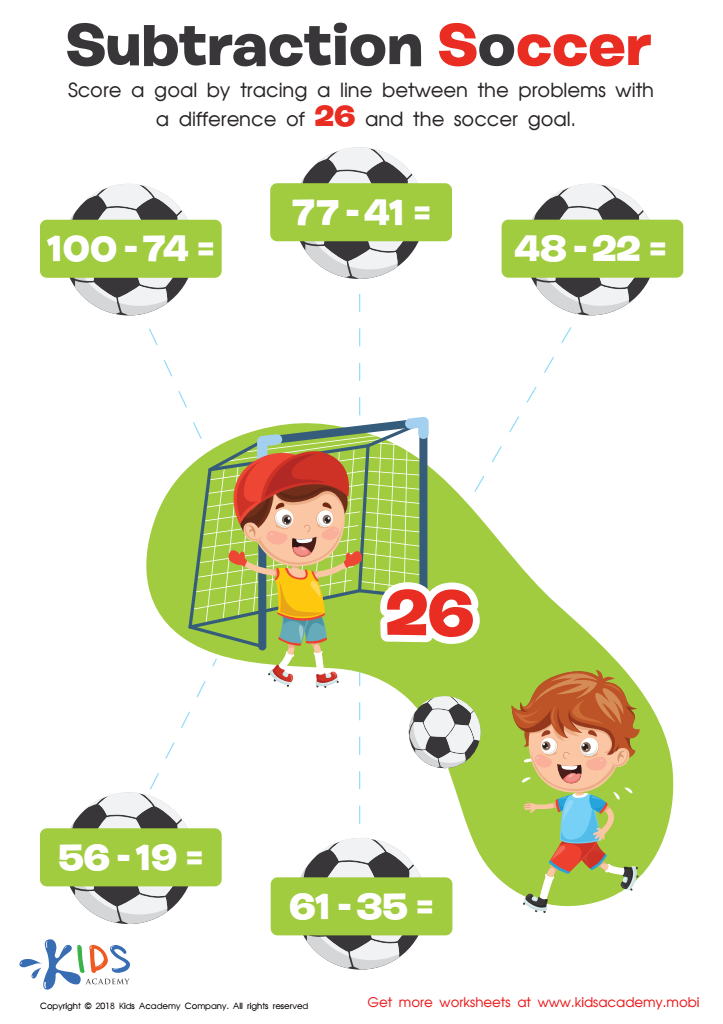

Subtraction Soccer Worksheet
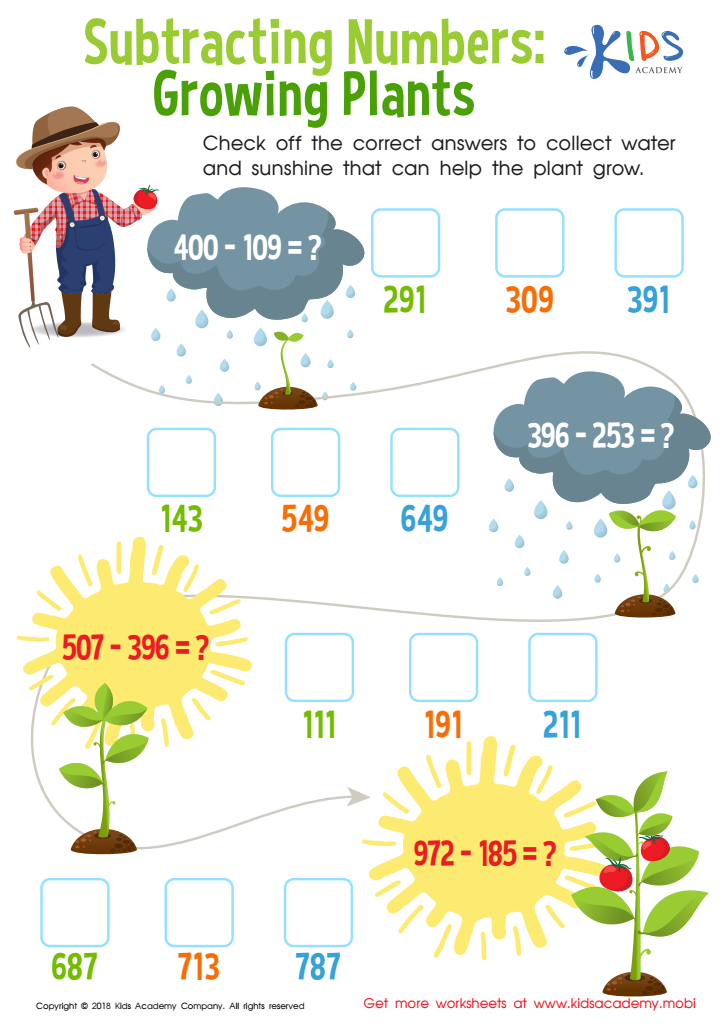

Subtracting Numbers: Growing Plants Worksheet
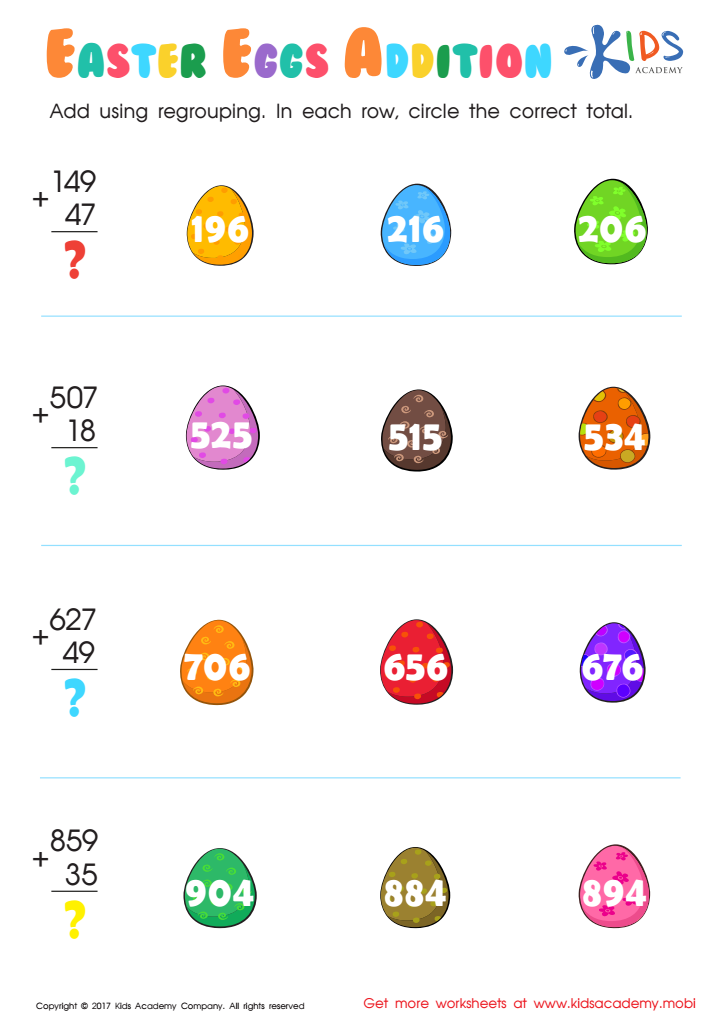

Addition with Regrouping Worksheet


7 Continents and 7 Seas Worksheet
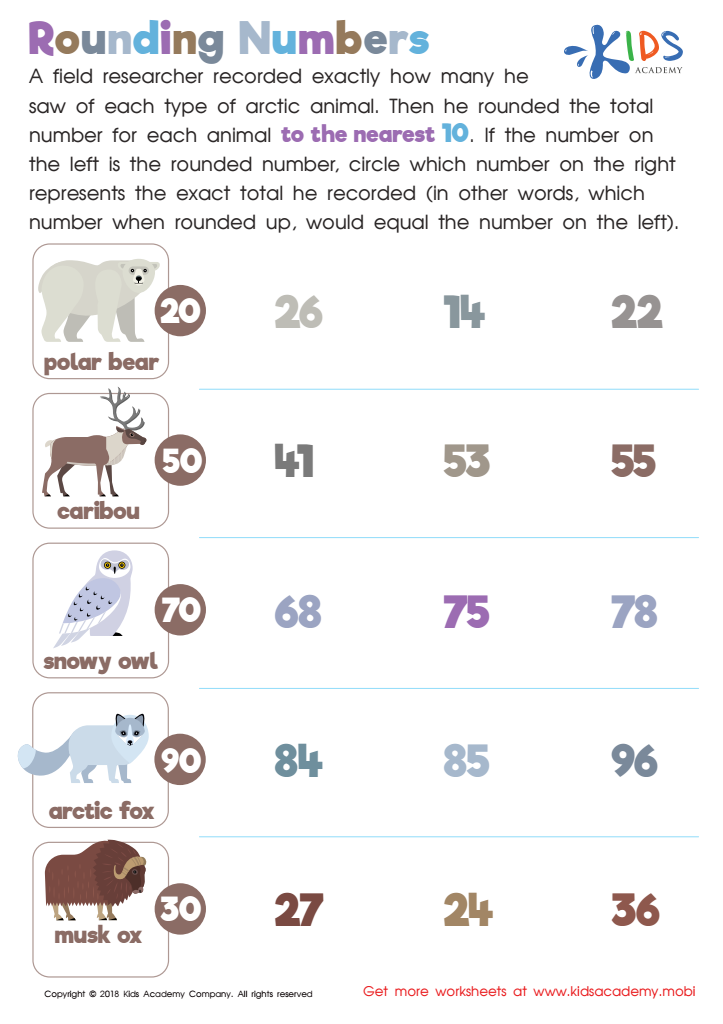

Rounding Numbers Worksheet
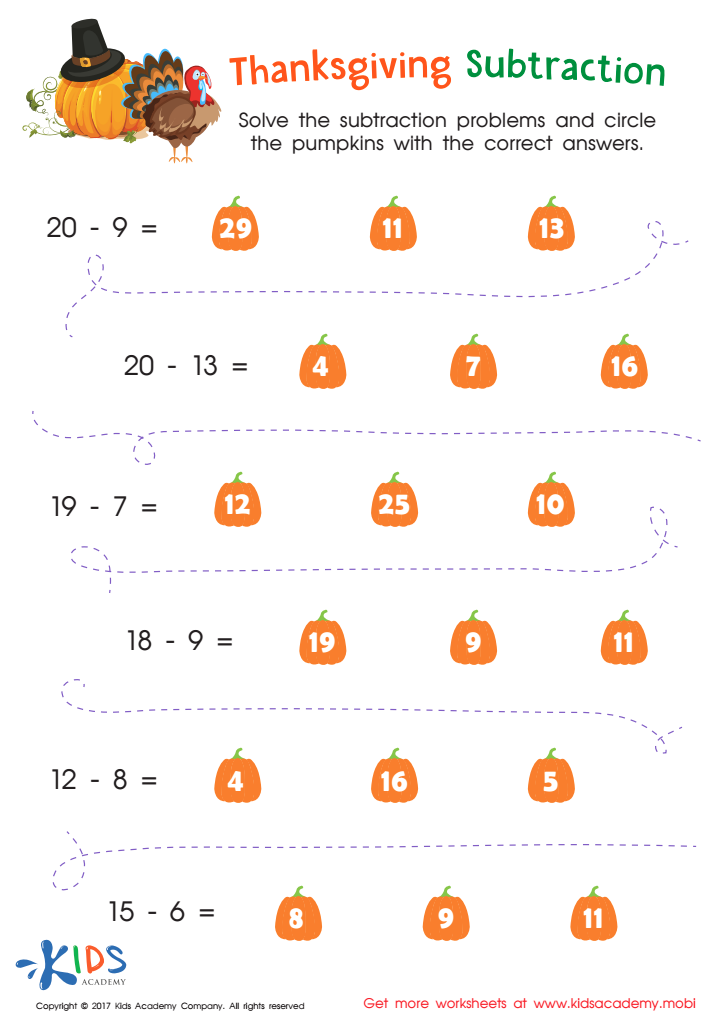

Thanksgiving Subtraction Substraction Worksheet
Number comprehension is a crucial skill for children aged 5-8, laying the foundation for their mathematical understanding and problem-solving abilities. Parents and teachers should care about this developmental milestone because it impacts daily life, academic success, and future learning.
During these formative years, children are first introduced to essential numerical concepts, including counting, number recognition, basic addition and subtraction, and understanding the value of numbers. A strong grasp of these fundamentals enables children to develop confidence when encountering more advanced mathematical topics in later years.
Furthermore, number comprehension fosters critical thinking and logical reasoning skills. As children experiment with numbers and engage in mathematical play, they learn to analyze situations, make predictions, and evaluate outcomes, which are applicable beyond academics.
Supporting number comprehension also prepares children for a wide range of real-world situations, from budgeting money to understanding time and measurements. By advocating for and actively participating in their children’s numerical learning experiences, parents and teachers contribute to building a supportive educational environment. This involvement not only enhances children’s cognitive and social-emotional development but also cultivates a positive attitude toward learning math, helping them become lifelong learners.
 Assign to My Students
Assign to My Students




















